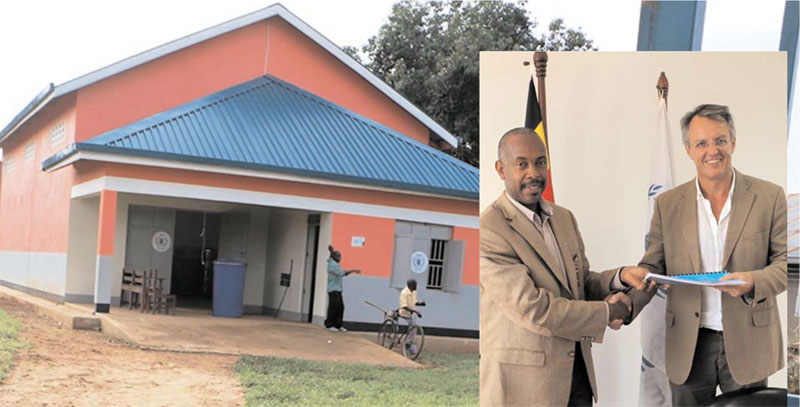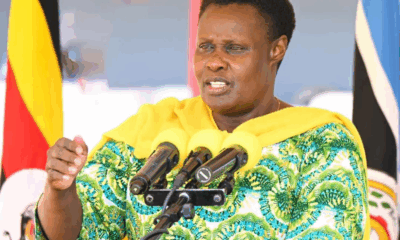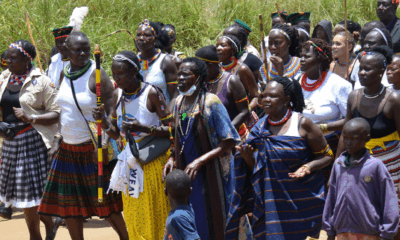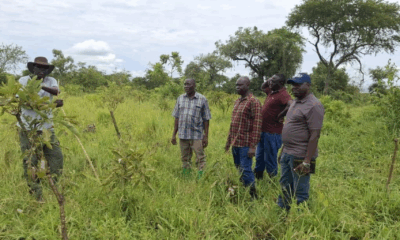News
NAADS gives WFP Ushs3.3bn to construct grain stores

A Grain store built by WFP in Iganga (Inset) is Samuel Mugasi (L) and Michael Dunford after signing the agreement
The National Agricultural Advisory Services (NAADS) and the United Nations World Food Programme (WFP) have signed an agreement to construct 10 community-level grain stores in 10 districts of Uganda over the next four months in an effort to address grain storage challenges nationally while enhancing small-scale farmers’ access to quality produce markets.
Under the agreement, Kibaale, Kiboga, Kiryandongo, Kyenjojo, Masindi, Mubende, Nakaseke and Napak.
Each unit will have a storage capacity of between 200 and 300 metric tons and is expected to support up to 400 farming households.
“NAADS has been focusing on providing seeds, and this has helped to increase production country-wide,” the NAADS Executive Director, Dr. Samuel Mugasi said. “However, this partnership with WFP will take us a step higher in the value chain.
It will enable NAADS to achieve its purpose of assisting farmers to reduce post-harvest food losses – including through modern storage – benefit from group marketing and improve their household incomes and livelihoods.”
Mugasi said there was no better choice of partner than WFP. He said, “WFP has built a good reputation in grain handling, mobilizing farmers for production and supporting agriculture value chains.
It has a good model in place, and we are excited to be part of it. Under the MoU, WFP and NAADS will also jointly support small-scale farmer groups with soft skills and other capacity building for group marketing.”
WFP’s Country Director, Michael Dunford, said WFP’s role in Uganda primarily is to support the vision of the government, working with capable entities such as NAADS and Operation Wealth Creation in building agricultural capacity.
“Good infrastructure empowers farmers to access markets, gives them control over when they get to sell their grain and, as such, protects them from hunger,” Dunford said.
NAADS and WFP plan to work together to build another 10 stores next year. WFP has already established 60 storage facilities countrywide – using mainly funding from the United States — and farmers trading through them have been selling their grain more profitably.
Comments


















